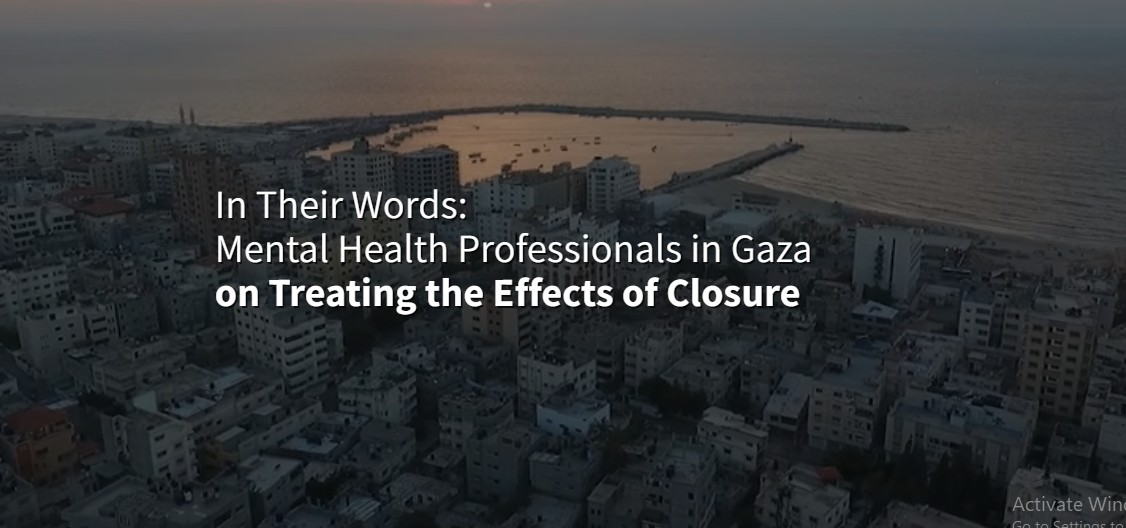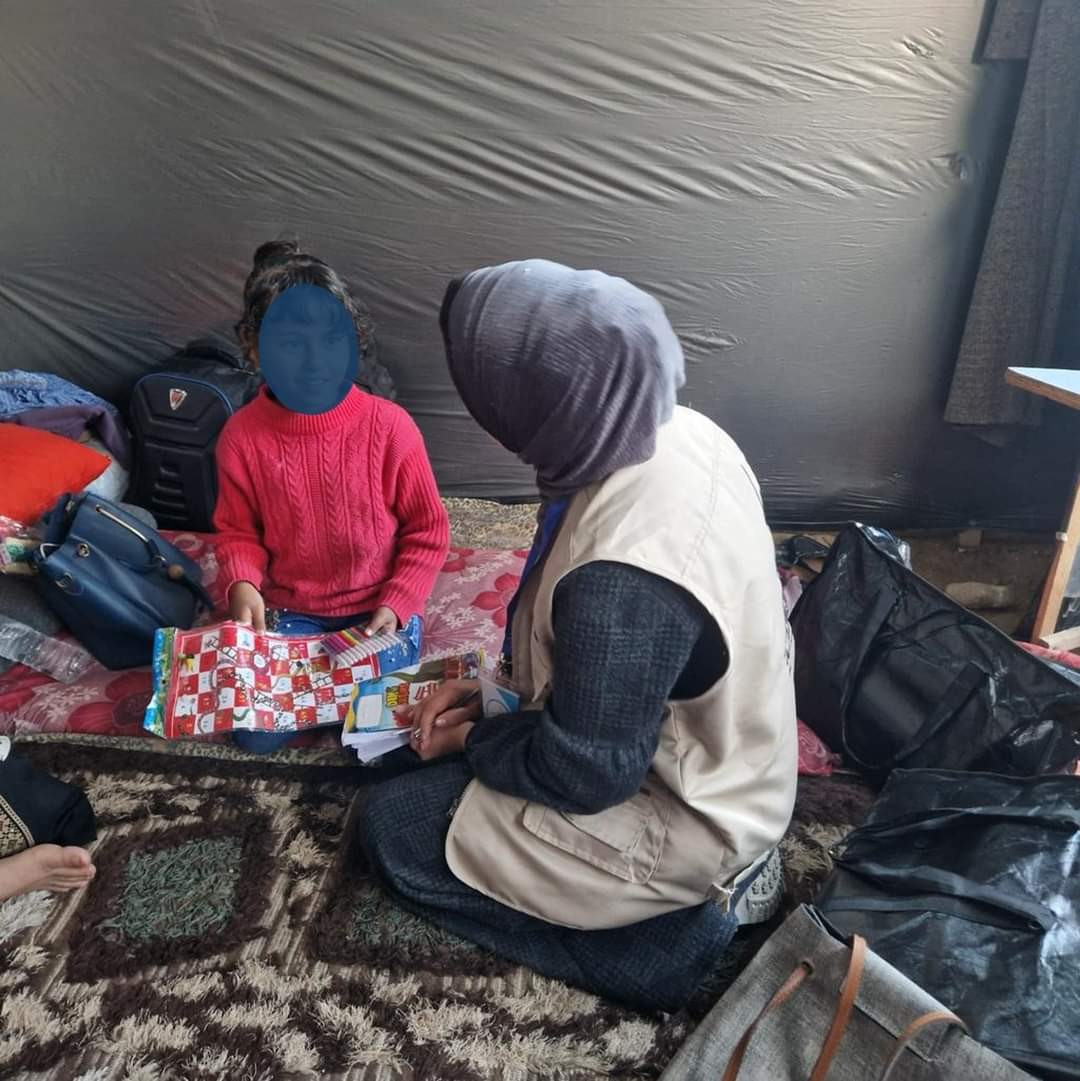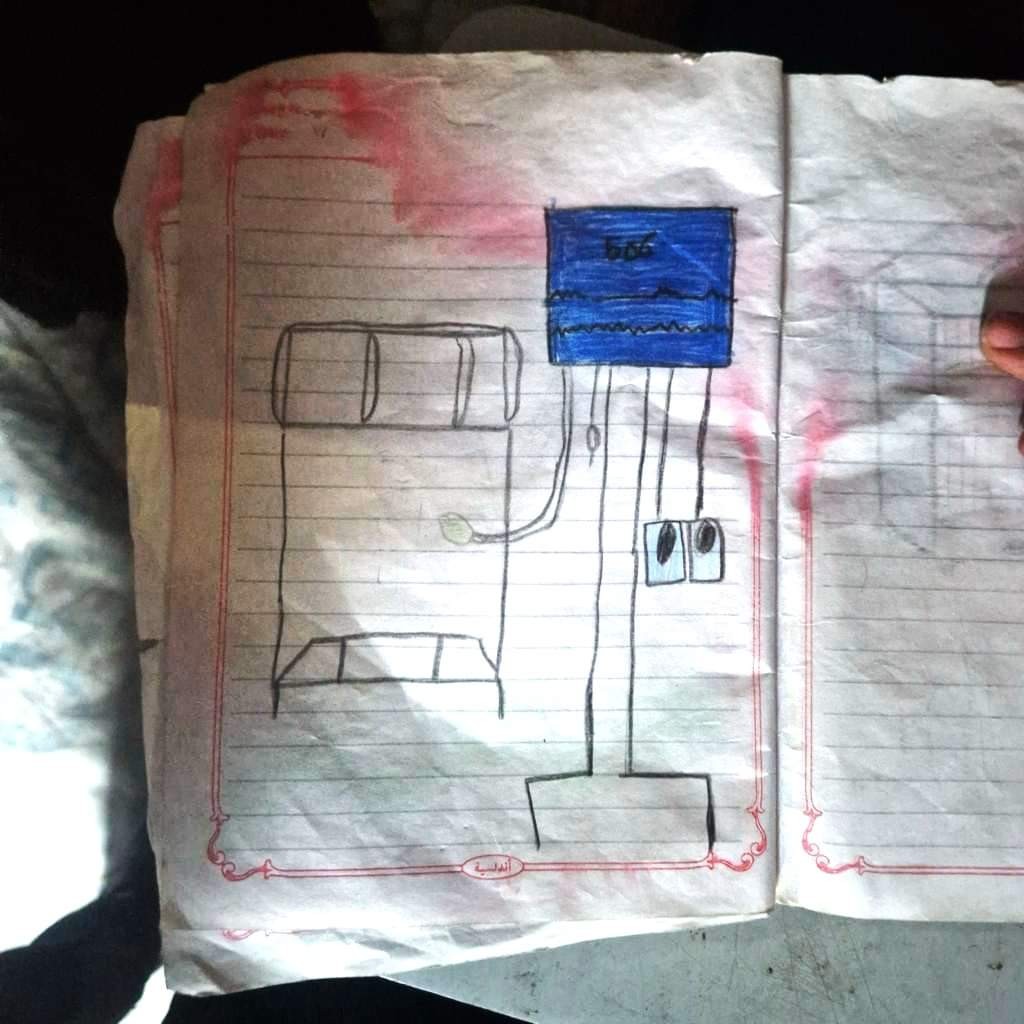
“Gisha: “There’s a clear link between the Israeli closure and the grave state of mental health in Gaza'”
Gisha writes:
In a new visual publication launched today, fifteen years after Israel tightened movement restrictions to and from Gaza to the point of full closure and its security cabinet declared Gaza a “hostile territory,” mental health care providers shed light on the impact of Israeli policies in the Strip on Palestinians’ mental health.
Gisha and the Gaza Community Mental Health Programme – GCMHP convened a group of mental health professionals in Gaza for a discussion on the effects of Israel’s ongoing closure policy on mental health. They noted that hundreds of thousands of people in Gaza suffer from post-traumatic stress disorder (PTSD); in many cases, anxiety caused by the ongoing closure and the state of seemingly endless war take the form of physical pain and suffering and can lead to severe depression and suicidal ideation. Research has indicated that these symptoms are also prevalent among children, who comprise half of Gaza’s population, a generation who was born into and grew up in the shadow of the closure.
Care professionals and therapists in Gaza work tirelessly, in impossible circumstances, to provide care for others but in the ongoing reality of occupation, oppression and violence, what they can do to help can only go so far. The visual publication launched today presents insights from mental health experts in Gaza who describe, in their own words, the personal and professional challenges they face. Israel’s sweeping, arbitrary and illegal movement restrictions separate care providers in Gaza from colleagues outside the Strip, prevent access to training and retreats, and trap residents of the Strip in a seemingly perpetual cycle of despair.
This situation isn’t a natural disaster, it’s the outcome of policy. As one expert quoted in the publication says: “The state of mental health in Gaza could improve drastically with a single political decision by Israel to remove the closure and allow freedom of movement. Removing the closure would have immense impact on mental health because then, at least, we would have hope”.




Read Comments
Steven Rich
March 10, 2019Omnis iste natus error sit voluptatem accusantium nam libero tempore, cum soluta nobis est eligendi optiocumque nihil impedit quo minus id quod maxime.
Van Wimbilton
March 10, 2019Natus error sit voluptatem accusantium nam libero tempore, cum soluta nobis eligendi optio cumque nihil impedit quo minus id quod maxime.